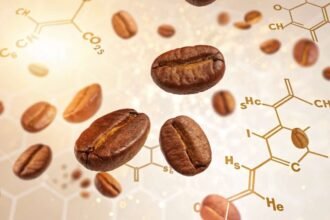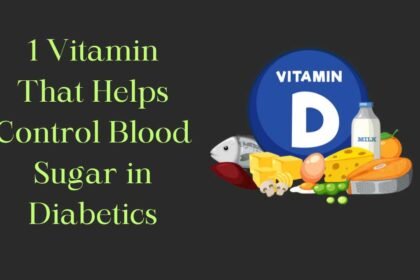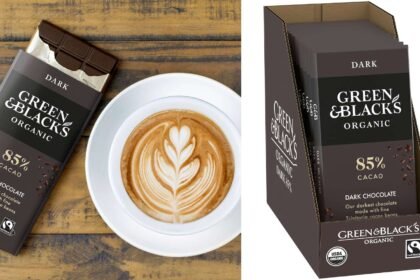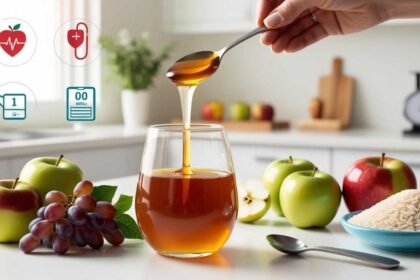Hypertension, or high blood pressure, is a common health problem that affects about half of the people in the world.
People often call this condition a “silent killer” because it doesn’t show any symptoms but is linked to major health risks like heart disease, stroke, and kidney failure.
Medications and changes to your lifestyle are the main ways to control blood pressure, but adding natural treatments like hibiscus tea to your daily routine may also help a lot.
This blog posts looks at the possible health benefits of hibiscus tea, its nutritional profile, and how to safely drink it by using new studies and expert views.
What is Hibiscus Tea?
Tea made from hibiscus flowers comes from the calyx, which is a bright red part of the plant that covers the petals.
The tart, cranberry-like taste of this tea is famous, and people all over the world drink it for both its taste and its health benefits.
Hibiscus sabdariffa and Hibiscus rosasinensis are the two main types used for tea. The first one has been studied a lot for its health benefits, while the second one is more likely to be found in commercial goods.
The Science Behind Hibiscus Tea and Blood Pressure
According to research, hibiscus tea may be a good natural way to lower blood pressure. A 2020 review of seven studies found that hibiscus tea lowers both systolic and diastolic blood pressure by a large amount.
Previous systematic studies that looked at the tea’s role in improving heart health back up these results.
How Does Hibiscus Tea Work?
Hibiscus tea’s effectiveness in lowering blood pressure is attributed to three key mechanisms:
- Rich in Anthocyanins
Anthocyanins are flavonoids responsible for the red pigment in hibiscus flowers. These compounds exhibit powerful antioxidant and anti-inflammatory properties. They are thought to influence the renin-angiotensin system, which regulates blood pressure by controlling fluid balance and blood vessel constriction. - Natural Diuretic Effect
Hibiscus tea may act as a mild diuretic, encouraging the body to excrete excess sodium and water. This reduces fluid volume in the blood vessels, thereby lowering blood pressure. However, people with dehydration or certain medical conditions should consume it cautiously. - Vasodilation
The tea promotes vasodilation, a process where blood vessels widen, reducing resistance and pressure. This is akin to enlarging the nozzle of a garden hose to reduce water pressure.
Also Read: Mugwort Tea: Health Benefits and Nutrition Fact
Beyond Blood Pressure: Other Health Benefits of Hibiscus Tea
Hibiscus tea offers a plethora of additional health benefits, making it a versatile beverage for overall well-being.
1. Cholesterol Reduction
A 2021 review found that hibiscus tea helps lower “bad” LDL cholesterol while improving lipid profiles. This can reduce the risk of atherosclerosis, a condition where cholesterol deposits clog arteries.
2. Blood Sugar Control
Hibiscus tea has been shown to lower fasting blood glucose levels, making it a potential ally in diabetes management. Its anti-diabetic properties may help regulate blood sugar levels and reduce complications.
3. Weight Management
Studies suggest that hibiscus tea, when combined with other plant extracts, can aid in weight loss by improving metabolism and reducing fat accumulation. While promising, further research is needed to confirm its efficacy.
4. Hormonal Balance
Hibiscus tea contains phytoestrogens, plant-based compounds that mimic estrogen in the body. This may help alleviate symptoms of premenstrual syndrome (PMS) and menopause, although more studies are required to substantiate these claims.
5. Rich in Antioxidants
Hibiscus tea is packed with polyphenols, which combat oxidative stress, reduce inflammation, and support overall health.

FGO Organic Hibiscus Tea
FGO Organic Hibiscus Tea, Eco-Conscious Tea Bags, 100 Count, 100 Servings, Packaging May Vary (Pack of 1)
Nutritional Profile of Hibiscus Tea
Simply put, hibiscus tea is very appealing. It doesn’t contain any caffeine and is low in calories, so it’s a good choice for people of all ages.
An 8-ounce serving gives you small amounts of minerals like calcium, magnesium, phosphorus, and potassium.
Incorporating Hibiscus Tea into Your Routine
For optimal health benefits, hibiscus tea should be consumed regularly. While there is no universal dosage, some studies recommend steeping 20 grams of dried hibiscus flowers in 100 milliliters of water. Regular consumption over four weeks has been shown to yield measurable reductions in blood pressure.
Tasty Ways to Enjoy Hibiscus Tea
- Hot Brew: Perfect for cold evenings, steep hibiscus flowers in hot water and add a dash of honey for sweetness.
- Iced Tea: A refreshing summer drink, serve chilled with a squeeze of lime.
- Infused Water: Add hibiscus tea to your water bottle for a subtle, tart flavor throughout the day.
Precautions and Potential Risks
While hibiscus tea is generally safe, certain individuals should exercise caution:
- Pregnant or Nursing Women
The phytoestrogens in hibiscus may interfere with hormonal balance, posing potential risks during pregnancy or breastfeeding. - Drug Interactions
Hibiscus tea may interact with medications such as diuretics, acetaminophen, and hormonal treatments. Always consult your doctor if you are on medication. - Liver Health
Excessive consumption of concentrated hibiscus extract has been linked to elevated liver enzymes in animal studies. Moderation is key. - Low Blood Pressure
Individuals prone to low blood pressure should monitor their intake, as hibiscus tea can exacerbate hypotension.
Complementary Foods for Blood Pressure Management
If hibiscus tea isn’t your cup of tea—or you wish to enhance its benefits—consider incorporating these potassium-rich foods into your diet:
- Yogurt: A single serving of Greek yogurt provides 240 mg of potassium, essential for blood pressure regulation.
- Bananas: Packed with 422 mg of potassium, bananas are a convenient and heart-healthy snack.
- Beets: High in nitrates, beets promote vasodilation and reduce blood pressure effectively.
The Bottom Line
Hippopotamus tea is not only a tasty drink, but it is also very good for you. Both science and tradition back up this natural remedy.
It has been shown to lower blood pressure and cholesterol, help with weight loss, and keep hormones in order.
But, as with any health treatment, it’s important to take it with care and talk to a doctor if you need to.
You can make big steps toward better heart health and overall well-being by drinking hibiscus tea every day and eating a balanced diet.











